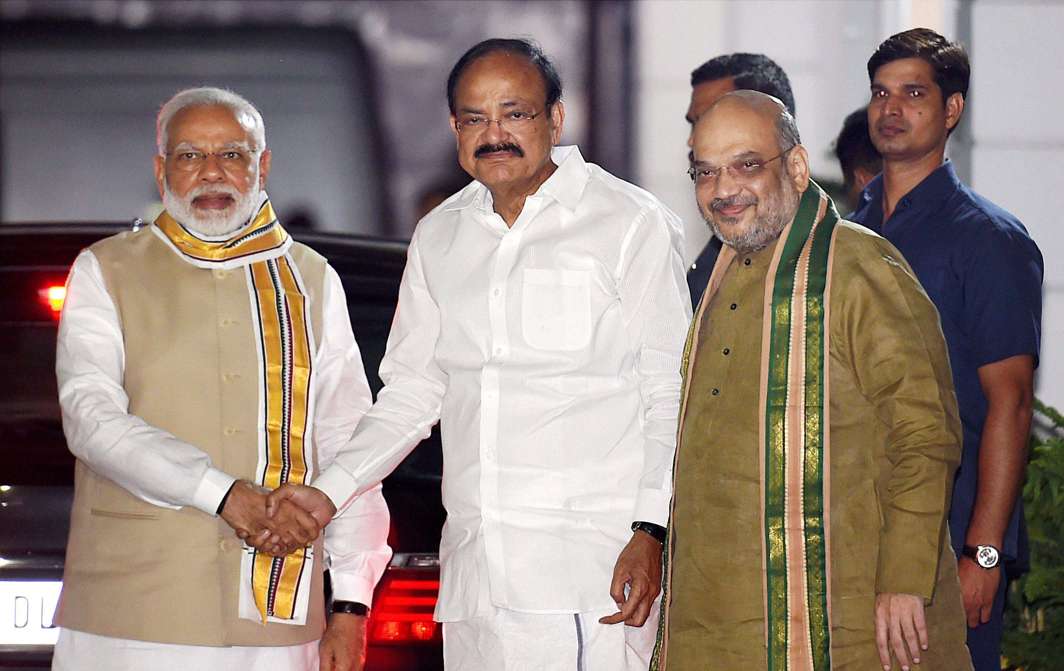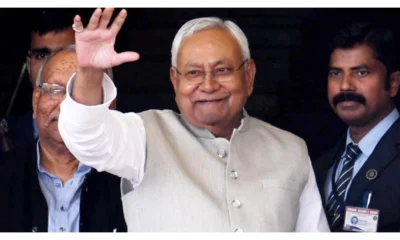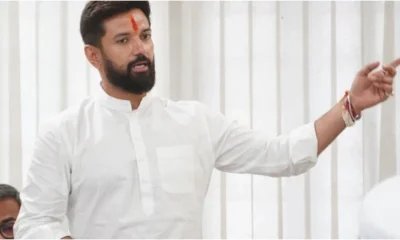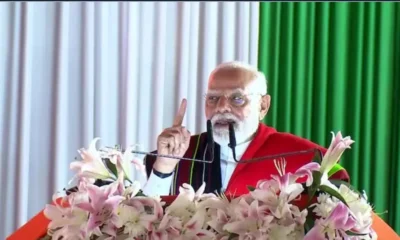[vc_row][vc_column][vc_column_text]Ruling NDA’s candidate M Venkaiah Naidu was elected Vice President of India with 516 votes out of 785 votes polled. Opposition’s candidate Gopalkrishna Gandhi got 244 votes.
As Vice President, Naidu also becomes the ex-officio Chairman of the Rajya Sabha, where BJP on Thursday overtook the Congress as the single largest party with 58 seats. The Congress has 57.
The voting began at 10 am Saturday and went on till 5 pm in the evening. Prime Minister Narendra Modi, NDA’s vice presidential candidate Venkaiah Naidu and Uttar Pradesh Chief Minister Yogi Adityanath, who is yet to give up his Lok Sabha membership, were among the first to cast their ballot.
Voting ended with 771 out of 785 votes polled, with a poll percentage of 98.21%. There were 14 MPs absent from voting; 2 from BJP, 2 from INC, 2 from IUML, 4 from TMC, 1 from NCP; 1 from PMK & 2 Independent. BJP MPs Sanwarlal Jat and Vijay Goel could not vote in the Vice-Presidential Election because they are hospitalised, reported PTI.
As per the norms, Members of both Houses of Parliament vote in the vice-presidential election through secret ballot and no whip is allowed. Members of Parliament marked their choice in the election with special pens.
The total strength of the two Houses is 790, but there are two vacancies in the Lok Sabha and one in the Rajya Sabha. BJP MP in Lok Sabha Chhedi Paswan is barred from casting vote following a judicial pronouncement.
While Naidu had the support of the NDA parties along with AIADMK, TRS and YSRCP, Opposition candidate, former Bengal Governor Gopal Krishna Gandhi was backed by MPs belonging to the Congress, RJD, JD(U), NCP, Left and other smaller parties.
In the 545-member Lok Sabha, the BJP has 281 members. The NDA led by BJP, has 338 members. In the 243-member Rajya Sabha, the BJP is now the single largest party with 58 members, overtaking the Congress which has 57.
The Biju Janata Dal (BJD) and the Janata Dal (United) which had supported NDA nominee Ramnath Kovind for the post of president, had decided to back opposition nominee Gandhi. The JD(U) broke ties with ‘mahagathbandhan’ and joined hands with the Bharatiya Janata Party (BJP) to form a new government in Bihar, but decided to vote for Gandhi.
The term of the present incumbent Hamid Ansari, who has held the post for two consecutive terms, is coming to an end on 10 August.
All you need to know about India’s 13th Vice President M Venkaiah Naidu
Born July 1, 1949 in Nellore district of Andhra Pradesh, Venkaiah Naidu lost his mother when he was 18 months old. His father, too, passed away early and he was raised by his maternal uncles. Naidu, showed early signs of his leadership skills by emerging as the students’ union president.
Naidu came to into spotlight for his prominent role in Jai Andhra movement of 1972. In 1974, Naidu joined the protest against the imposition of emergency and became the Andhra Pradesh convenor of Jayaprakash Narayan led Chhatra Sangarsh Samiti. He was also imprisoned during this phase.
He joined the Janata Party in 1977 and subsequently the Bharatiya Janata Party in 1983. Naidu became the youngest national president of BJP at the age of 52 in 2002.
Naidu was elected to the Lok Sabha twice from the Udaygiri constituency (Nellore) in 1978 and 1983.
In 1998, Naidu was elected to the Rajya Sabha from Karnataka and since then he continues to be a member of the Upper house being re-elected thrice (twice from Karnataka and once from Rajasthan).
Naidu held the Rural Development portfolio in Vajpayee government and three ministerial positions in Narendra Modi government including the Information and Broadcasting Ministry.
He is one of the foremost admirers of the Prime Minister and has coined the phrase “MODI: Making of Developed India”.
Known for coining witty acronyms, Naidu did so recently with the initials of APJ Abdul Kalam when he said APJAK stands for “Anything is possible with Just Attitude and Karma”. The other acronyms he came up with are –
MODI – Modifier of Developed India
EVM – Every Vote Modi
YOUNG – You Owe U and National Greatness
Congress had recently indicated that Naidu had influenced the Telangana government to exempt daughter Deepa Venkat’s NGO Swarna Bharat Trust from paying charges amounting to more than Rs 2 crore. Congress leader Jairam Ramesh also claimed that Telangana government placed the order to buy vehicles from Harsha Toyota, owned by Venkaiah Naidu’s son Harshvardhan Naidu, “in contravention of rules, and without even floating a tender”.
Ramesh also raised the decade old issue of allotment of land by the then Madhya Pradesh government to KTMT trust of which Naidu was the chairman. The Supreme Court on April 6, 2011 quashed the allotment of 20 acres of land made to KTMT trust.
However, Naidu refuted all the charges calling them politically motivated.[/vc_column_text][vc_row_inner css=”.vc_custom_1501940923848{border-top-width: 20px !important;background-color: #a2b1bf !important;}”][vc_column_inner][vc_column_text]Positions held by M Venkaiah Naidu –
- 1973–74 : President, Students Union, Andhra University
- 1974 : Convener, Lok Nayak Jai Prakash Narayan Yuvajana Chatra Sangharsha Samithi, Andhra Pradesh
- 1977–80 : President, Youth Wings of Janata Party, Andhra Pradesh
- 1978–85 : Member, Legislative Assembly, Andhra Pradesh (2 terms)
- 1980–85 : Leader, B.J.P Legislative Party in Andhra Pradesh
- 1985–88 : General Secretary, Andhra Pradesh State B.J.P.
- 1988–93 : President, Andhra Pradesh State B.J.P.
- 1993–September 2000 : National General Secretary, Bharatiya Janata Party
- Secretary, B.J.P. Parliamentary Board
- Secretary, B.J.P. Central Election Committee
- Spokesperson of the B.J.P.
- Since 1998 : Member, Rajya Sabha from Karnataka (3 terms)
- 30 September 2000–1 July 2002 : Minister of Rural Development
1 July 2002–5 October 2004 : National President, Bharatiya[/vc_column_text][/vc_column_inner][/vc_row_inner][/vc_column][/vc_row]

























